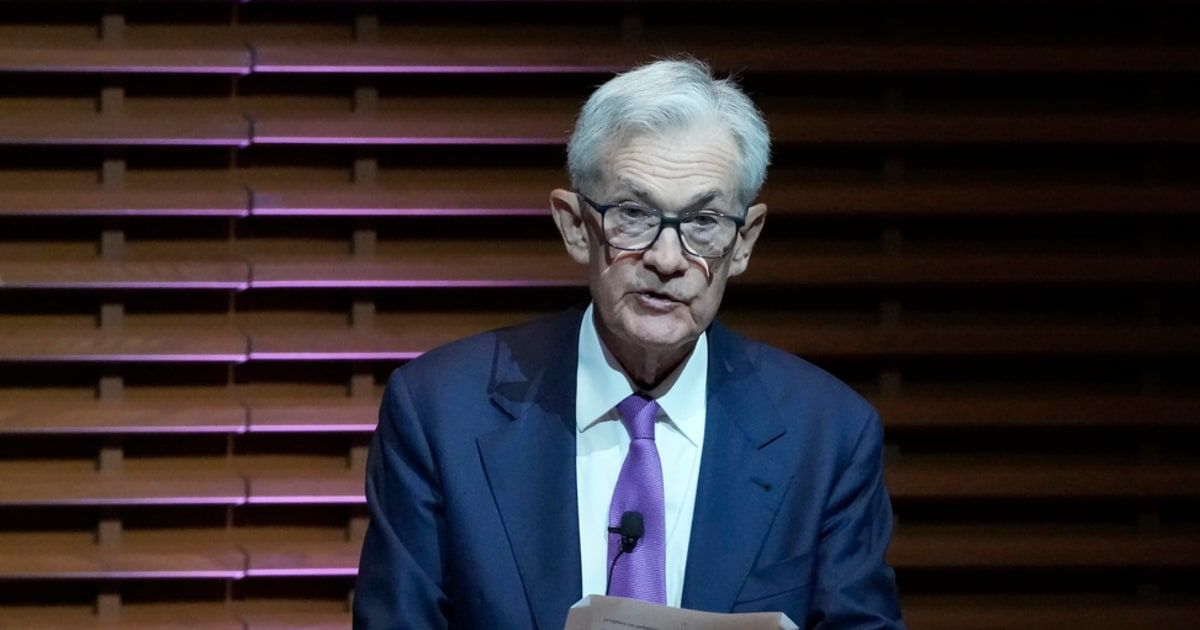The last time the United States came close to defaulting on its debt, a Democratic president and a Republican speaker of the House of Representatives reached an agreement to raise the nation's debt limit and strictly restrict the growth of federal spending for years to come.
The deal avoided default but hampered what was already a slow recovery from the Great Recession.
The U.S. House of Representatives and the dome of the Capitol on May 28, 2023 in Washington, DC. Biden and the G.O.P. reached an agreement to raise the debt limit and avoid default for two years. Anna Rose Layden/Getty Images/AFP (Photo by Anna Rose Layden/GETTY IMAGES NORTH AMERICA/Getty Images via AFP)
The debt deal that President Biden and House Speaker Kevin McCarthy have agreed to in principle is less restrictive than the one President Barack Obama and House Speaker John Boehner reached in 2011, centered on just two years of spending cuts and limits.
The economy that will absorb those cuts is in much better shape.
As a result, economists say the deal is unlikely to inflict on the recovery the kind of lasting damage caused by the 2011 debt ceiling deal and, paradoxically, the new spending restraint could even help it.
"For months I worried about the economic fallout from the negotiations, but the macroeconomic impact appears to be negligible at best," said Ben Harris, a former Treasury undersecretary for economic policy who left his post earlier this year.
"The most important impact is the stability that comes with a deal," Harris said.
"Markets can function knowing that a cataclysmic debt ceiling crisis is not looming."
Biden expressed confidence earlier this month that any deal would not trigger an economic downturn.
This was partly because growth persisted over the past two years, even as pandemic relief spending expired and total federal spending fell from elevated Covid levels, helping reduce the annual deficit by $1.7 trillion last year.
Asked at a press conference at the Group of 7 summit in Japan this month whether spending cuts in a budget deal would trigger a recession, Biden responded:
"I know they won't. I know they won't. In fact, the fact that we have been able to cut government spending by $1.7 trillion has not caused a recession. That caused growth."
In principle, the agreement must still be approved by the House of Representatives and the Senate, where it faces opposition from the most liberal and conservative congressmen.
It goes well beyond spending limits, as it also includes new work requirements for food stamps and other government aid and an effort to speed up permitting for some energy projects.
But its centerpiece is limiting spending.
Negotiators agreed to slight cuts in discretionary spending — outside of defense and veterans care — from this year to next, after accounting for some accounting adjustments.
Military and veterans spending would increase this year to the amount requested in Biden's fiscal year 2024 budget.
All these programs would grow by 1% in fiscal year 2025, less than expected.
An analysis of the proposal by The New York Times suggests it would cut federal spending by about $55 billion next year, compared with the Congressional Budget Office's forecasts, and by another $000 billion in 81.
Mark Zandi, an economist at Moody's Analytics, conducted the first analysis of the deal's economic repercussions. Zandi had already calculated that a prolonged default could wipe out seven million jobs in the U.S. economy, and that a deep round of Republican-proposed spending cuts would wipe out 2.6 million jobs.
His analysis of the fledgling agreement was much more modest:
The economy would have 120,000 fewer jobs by the end of 2024 than it would have without a deal, according to its estimates, and the unemployment rate would be about 0.1% higher.
Zandi wrote on Twitter on Friday that "it is not the best time for fiscal restraint as the economy is fragile and recession risks are high."
But, he said, "it's manageable."
Corrective
Other economists say the economy could actually use a mild dose of fiscal austerity right now.
That's because the biggest economic problem is persistent inflation, driven in part by strong consumer spending.
Removing some federal spending from the economy could help the Federal Reserve, which has been trying to control price growth by raising interest rates.
"From a macroeconomic perspective, this agreement is a small help," said Jason Furman, a Harvard economist who was deputy director of Obama's National Economic Council in 2011.
"The economy still needs to cool down, and this takes pressure off interest rates to achieve that cooling."
"I think the Fed will appreciate the help," he said.
Economists often view increased government spending—if not offset by higher tax revenues—as a short-term boost to the economy.
That's because the government borrows money to pay salaries, buy equipment, cover health care, and provide other services that ultimately support consumer spending and economic growth.
This can help lift the economy at times when consumer demand is low, such as immediately after a recession.
That was the case in 2011, when Republicans took control of the House of Representatives and forced a showdown with Obama to raise the debt limit.
The nation was slowly emerging from the hole created by the 2008 financial crisis. The unemployment rate was 9%.
Transition
The Federal Reserve had cut interest rates to near zero to try to stimulate growth, but many liberal economists called for the federal government to spend more to help boost demand and accelerate job growth.
The budget deal between Republicans and Obama — which was negotiated by Biden, then vice president — did the opposite.
Federal discretionary spending was reduced by 4% in the first year after the deal compared to baseline projections.
In the second year, it reduced spending by 5.5% compared to forecasts.
Since then, many economists have blamed those cuts, along with too low stimulus spending at the start of the recession, for prolonging the suffering.
The deal announced Saturday contains minor cuts.
But the biggest difference today is economic conditions. The unemployment rate is 3.4%.
Prices are growing more than 4% annually, well above the Federal Reserve's 2% target.
Federal Reserve officials are trying to cool economic activity by making borrowing more expensive.
Michael Feroli, an analyst at JPMorgan Chase, wrote this week that the correct way to assess the emerging deal was in terms of "how much less work the Fed has to do in restraining aggregate demand because fiscal belt tightening is now doing that job."
Feroli estimated that the deal could work as the equivalent of a quarter-point increase in interest rates, in terms of helping to contain inflation.
Although the deal will only modestly affect the nation's future deficit levels, Republicans have argued that it will help the economy by reducing the accumulation of debt.
"We're trying to bend the cost curve of government for the American people," Rep. Patrick T. McHenry of North Carolina, one of the Republican negotiators, said this week.
Still, the settlement's spending cuts will affect discretionary non-advocacy programs, such as Head Start preschool, and the people they serve.
The new labor requirements could reduce food and other aid to vulnerable Americans.
Many progressive Democrats warned this week that those effects will take their own kind of economic damage.
"After inflation eats its share, flat funding will translate into fewer households with access to rent assistance, fewer children in Head Start, and fewer services for seniors," said Lindsay Owens, executive director of the liberal Groundwork Collaborative in Washington.
Catie Edmondson contributed to this article.
c.2023 The New York Times Company
See also







